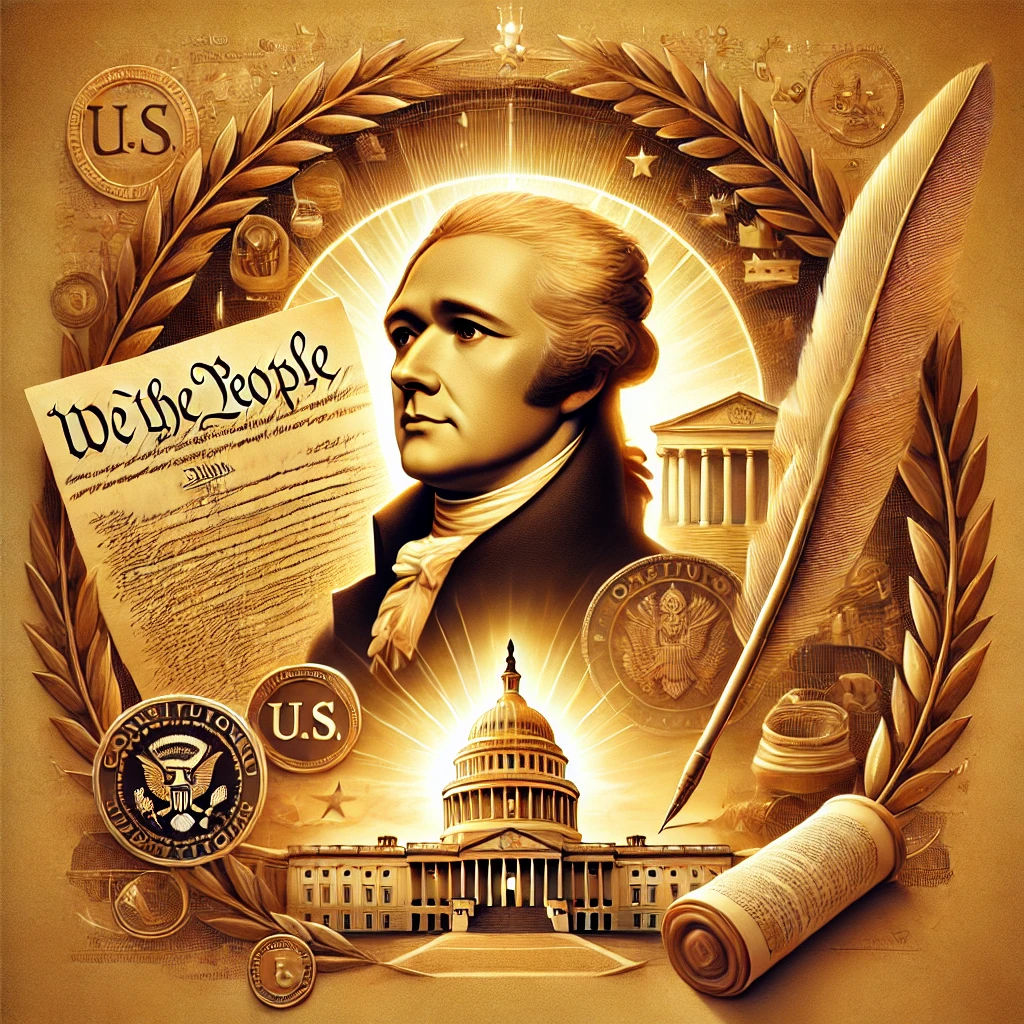On January 11th, 1755, Alexander Hamilton was born on the Caribbean island of Nevis, in what would later become one of the most pivotal figures in the founding of the United States. As a Founding Father, Hamilton played a crucial role in drafting the U.S. Constitution and shaping the nation’s financial system, making enduring contributions that continue to influence the United States today. His life, marked by brilliance, ambition, and controversy, helped lay the groundwork for the modern American government.

Early Life and Rise to Prominence
Hamilton’s early life was marked by hardship and resilience. Born to a poor family in the Caribbean, he was orphaned at a young age. However, his intellect and determination caught the attention of local benefactors, who sent him to New York for an education. He enrolled at King’s College (now Columbia University) and quickly made a name for himself as a brilliant and outspoken young man. During the American Revolution, Hamilton served as an aide-de-camp to General George Washington, impressing the future president with his military acumen and political savvy.
Following the Revolution, Hamilton’s leadership abilities began to shine as he became one of the key figures in shaping the new nation’s future. His contributions were vital in drafting the U.S. Constitution, particularly in the creation of the Federalist Papers, a series of essays written to advocate for the ratification of the Constitution. Hamilton’s vision for a strong central government, a robust financial system, and the expansion of American industry were key aspects of his political philosophy, ideas that would define his legacy.

Creating the Financial System
Hamilton’s most significant contribution to the early United States was his work as the first Secretary of the Treasury under President George Washington. In this role, he designed a financial system that laid the foundation for America’s economic future. One of his landmark achievements was the creation of the First Bank of the United States, which provided a stable currency and the ability to manage the nation’s debt.
Hamilton’s economic policies, including the assumption of state debts by the federal government, the establishment of a national bank, and the promotion of manufacturing, set the stage for America’s future economic growth. His bold vision for an industrial economy was in contrast to the agrarian ideals of his political rival, Thomas Jefferson, and laid the groundwork for the modern American economy. Hamilton’s financial framework endured for much of the nation’s history and remains influential in economic policy discussions today.

Controversy and Legacy
Despite his vital role in the founding of the United States, Hamilton’s life was not without controversy. His strong central government ideals often put him at odds with other leaders, particularly Jefferson and James Madison, who advocated for states’ rights. This division eventually led to the formation of the nation’s first political parties—the Federalists, led by Hamilton, and the Democratic-Republicans, led by Jefferson. Hamilton’s vision of a powerful central government was met with resistance, particularly from those who feared it would lead to tyranny.
Hamilton’s life was tragically cut short when he was killed in a duel with Aaron Burr, the sitting vice president, in 1804. Despite his early death, Hamilton’s contributions to American politics, economics, and governance left an indelible mark on the country. His ideas have influenced the structure of the federal government and the nation’s financial system, and his legacy continues to be celebrated in popular culture, especially through the hit musical Hamilton, which brought renewed attention to his life and work.
Alexander Hamilton’s birth on January 11th, 1755, set the stage for a life that would profoundly shape the United States. As one of the key architects of the nation’s financial system and a staunch advocate for a strong federal government, Hamilton’s influence remains a cornerstone of American history. His contributions to the Constitution, his role in developing the nation’s economic infrastructure, and his legacy as a visionary thinker continue to resonate today, ensuring his place as one of the most important figures in the founding of the United States.
